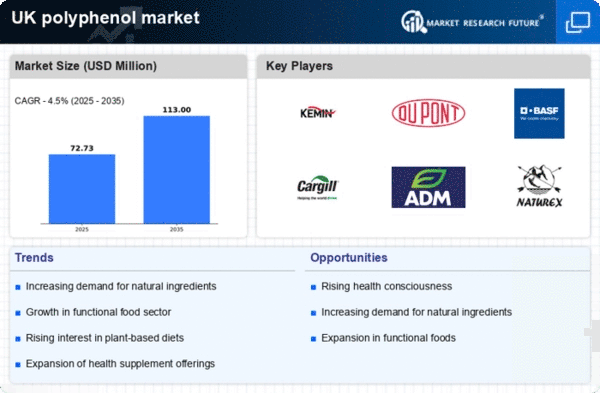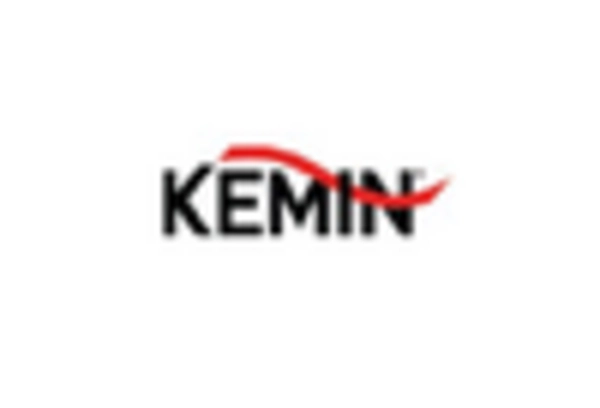UK Polyphenol Market Summary
As per Market Research Future analysis, the UK polyphenol market Size was estimated at 69.6 USD Million in 2024. The UK polyphenol market is projected to grow from 72.73 USD Million in 2025 to 113.0 USD Million by 2035, exhibiting a compound annual growth rate (CAGR) of 4% during the forecast period 2025 - 2035
Key Market Trends & Highlights
The UK polyphenol market is experiencing robust growth driven by health trends and innovation.
- The demand for natural ingredients in the UK polyphenol market is on the rise, reflecting a broader consumer shift towards health-conscious choices.
- Research and development activities are increasing, particularly in the functional foods segment, which is the largest in the market.
- Regulatory support for health claims is enhancing consumer trust and driving market expansion, especially in the fastest-growing segment of beverages.
- Key market drivers include growing health consciousness and rising interest in plant-based diets, which are significantly influencing consumer preferences.
Market Size & Forecast
| 2024 Market Size | 69.6 (USD Million) |
| 2035 Market Size | 113.0 (USD Million) |
| CAGR (2025 - 2035) | 4.5% |
Major Players
Kemin Industries (US), DuPont (US), BASF (DE), Cargill (US), Archer Daniels Midland Company (US), Naturex (FR), Ginkgo BioWorks (US), FMC Corporation (US), Sabinsa Corporation (IN)
















